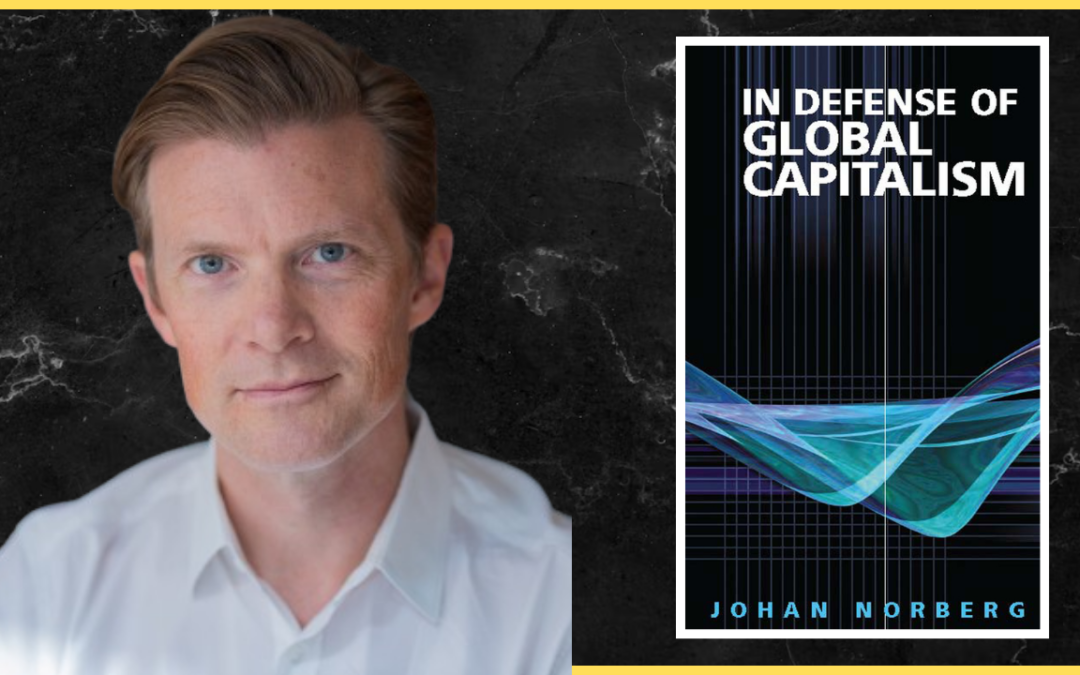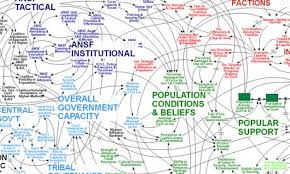Watch Kyle’s latest appearance on Judge Napolitano’s show ‘Judging Freedom,’ where he discusses the latest UN Security Council resolution on the Gaza war and last week’s deadly terrorist attack in Moscow.
Blog

Faith in Markets or Faith Politics?
I plead for greater liberty and a more open world, not because I believe one system happens to be more efficient than another, but because those things provide a setting that unleashes individual creativity as no other system can. They spur dynamism that has led to human, economic, scientific, and technological advances… At its core, belief in capitalism is belief in mankind… My aim is freedom and voluntary relations in all fields.
– Johan Norberg, In Defense of Global Capitalism
Ban “Ethnic Cleansing”
I propose that we defenders of individual rights stop using the term ethnic cleansing. Why? Because it is the sort of euphemism bad people would use to disguise what they are doing when they expel or annihilate large numbers of people viewed as members of the wrong group. The Nazis used the word hygiene when writing about “purifying” the Aryan “race.” That word was meant to soften the truth and dress it in scientific garb. But we all know what it meant. Ethnic cleansing would fit well into that lexicon.
Remember, it was the Nazis who talked like that — not the victims or outraged onlookers. They wouldn’t have called what the Nazis were doing ethnic cleansing. Why sanitize it? Cleansing is usually a good thing, isn’t it? They would have called it mass murder or mass deportation.
Why are we talking in Nazi euphemism?
Joe Lieberman is Dead
The Iraqis won’t miss him because they’re dead too because he killed them.
The Eternal Panopticon: The State as Predator
Lizard Farmer did an excellent synopsis of how the state stalks its prey. The observations are older but still germane.
If London had this technology in 1770, America would not have been born and Paul Revere, the Committees of Correspondence and his colleagues would have been renditioned to black sites.
“Make no mistake that over the last decade plus the DoD, DoJ, DHS, NSA, and CIA have definitely learned their lessons. From shortly after 9/11 when the new lessons of counter-insurgency still lay ahead to the recent (last few years) capture and killing of Al Qaeda’s top officers the concepts and techniques of counter insurgency targeting have been vastly refined. Lessons learned not only on the battlefield but in the ops center have developed intelligence “exploitation systems that are genuinely lethal due to their ability to be comprehensive and timely. Instead of sitting here typing out how these systems work I’m going to throw out a bit of a scenario for you. Not every system is represented but hopefully I’ll depict enough of them to give you an appreciation of just how dangerous they can be.”
Email me at cgpodcast@pm.me.
The Great Max Blumenthal on the Genocide Democrats
Jerusalem Post: You Go Fight a War to Destroy Iran For Us
We would like it better if Iran was broken up into six warring ethno-states, they say.
Just in case you thought America’s problems with Iran had anything to do with America’s national interests. No, it’s all about Israel. Has been since at least 1993.
Liberals Are So Horrible
Vote Vets, which was created by Democrats to cash in on opposition to Iraq War II, is now running ads attacking Republicans for holding up more billions for war in Ukraine.
They pretend that somehow American forces will have to go fight the next war for Poland or some total nonsense to justify it. Because liberals are always horrible. And liberals always lie.
Oh, they’ve “already” taken back some of the land Russia initially occupied. Yeah? And how long ago was the last time they took any? See, they’re liars. The war is lost. The only question now is if Ukraine can strike a deal before they lose Kharkiv and Odesa too. They were talking recently but Biden stopped them.










